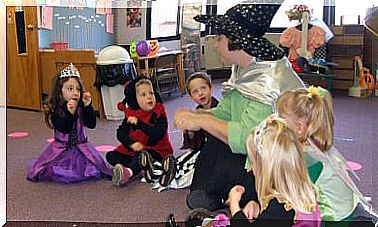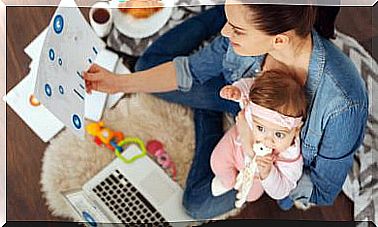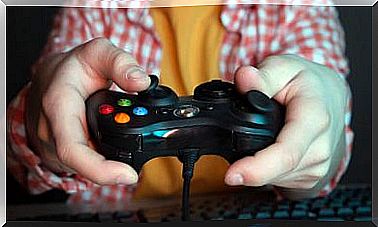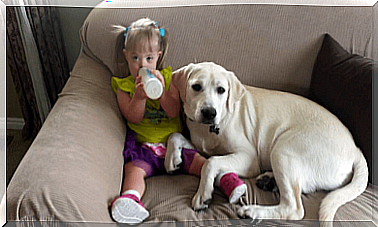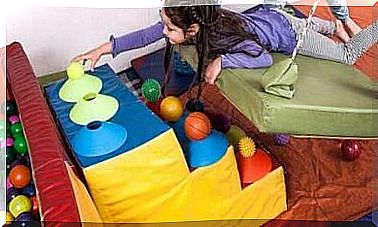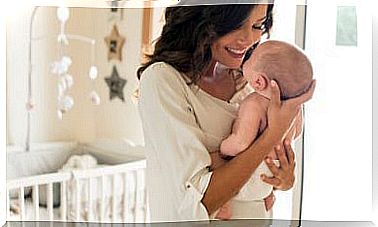Fourth Month Of Baby’s Life: Sociability Emerges

A stage of “independence” begins for your child. During the fourth month of your baby’s life, he will learn to use his hands to grasp objects and will become even more connected to his surroundings. A lot of babbling and smiles are coming!
After the first trimester, the baby’s muscles reach a point of development that allows them to make more use of their body. You will see that he will try to achieve new postures, such as sitting, even if he has not yet succeeded. You will be able to lean on your arms while lying down to lift your head and you will also love tossing and turning in bed.
Given the latter, be very careful not to leave it alone on a high surface. You do not yet know the limits and dangers of some actions.
You will perceive that the baby will be more attentive and will interact more with his surroundings. He will enjoy manipulating his toys (especially those that make noise), he will babble and wait for a response from the person who is accompanying him and will put any object he finds in his mouth. Be cautious with this. Be careful not to leave anything on hand that he could choke on.
As for your sociability, you will learn to laugh out loud when you are in a good mood and with company that suits you. You may cry when someone other than your mother or father approaches you, but it is only until you feel confident.
Changes in the body in the fourth month of life of the baby
- Weight gain slows down. You will gain about 150 grams per week.
- Its size will also not increase by leaps and bounds. Unlike what happened until the third month, in this quarter it will grow between 6 and 7 centimeters.
- Define their night hours. You will sleep between 8 and 10 hours at night. He will also take naps during the day.
- Fewer bowel movements. You will have fewer diapers to change, as it will go less body and also urinate less.
- Better arm and leg coordination. You will be able to pick up objects but not clamp your fingers. It will seek to stand on a firm surface.
- Greater sociability. You will not like being alone. It will emit its first sounds and even some syllables. He will smile a lot more and even laugh out loud.

- The feeding does not vary. Breast milk should continue to be the sole source of nourishment for the baby. Solid foods are only incorporated from the sixth month.
- It will develop your color vision. In addition, you will be able to distinguish the faces of your parents and those closest to you.
- The ear is also optimized. He will begin to identify the voices of those who spend the most time with him, especially his parents.
- Discomfort may appear. If your baby is irritable for any reason, such as constipation, diaper rash, colic, diarrhea, or a cold, see your pediatrician.
Tips for stimulation and parenting
The baby is in a very conducive stage for stimulation of his senses. How do we do this? In the first place, providing him with toys that make noise or lights and that react to his actions. In this way, you will begin to link your actions with possible consequences.
During the fourth month of the baby’s life there is an important cognitive development. Place him in front of the mirror and repeat his name so he can make connections. Also, always answer him when he talks to you to promote the ability to interact with others and take him out for a walk so that he knows the outside world.
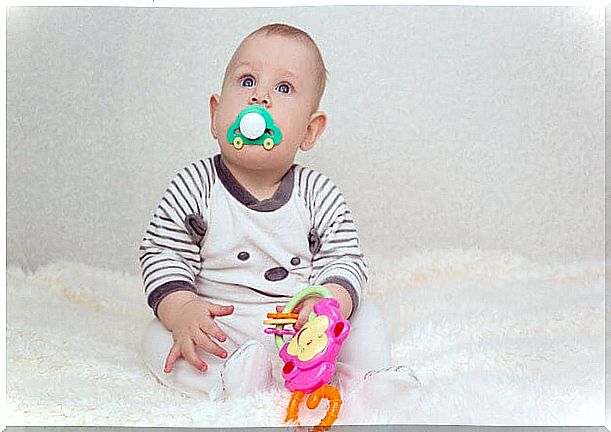
It is also important that you talk, sing or read to him. Change your tone of voice so that he learns to interpret moods.
A highly recommended game for the fourth month of life of the baby consists of laying him on his back and, looking at him from the front, offer him a toy (preferably of a striking color) so that he must move up or to one of the sides to reach it. This exercise has two fundamental benefits:
- Improve your flexibility and abdominal strength, as you will have to raise your upper limbs against gravity.
- Develops their visual, tactile and auditory abilities.
Other recommendations
As we always say, keep the vaccination schedule in mind and stick to it strictly.
Pacifier yes or pacifier no? It is a highly debated topic. It has its advantage in that it decreases the baby’s anxiety, but it can be counterproductive. We offer you some tips to handle this situation in this article. If you detect any abnormality or if the baby has any discomfort, do not hesitate to consult a professional. Otherwise, enjoy this stage. It will fly by!

